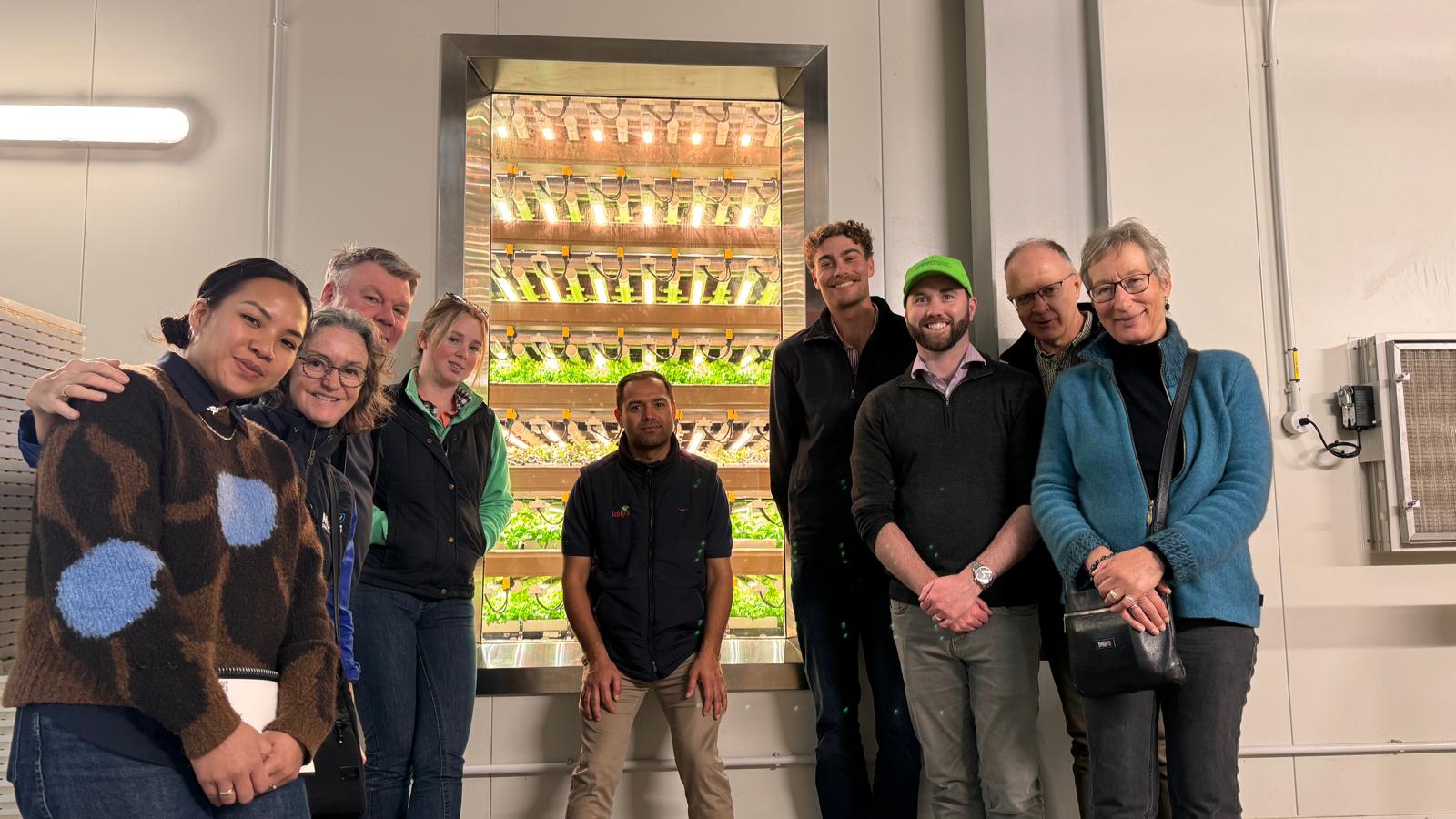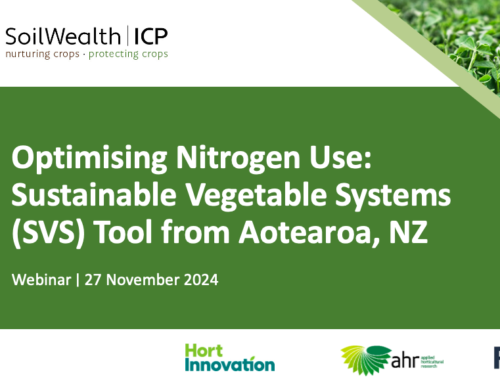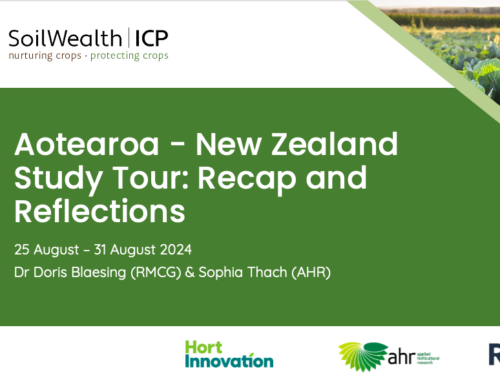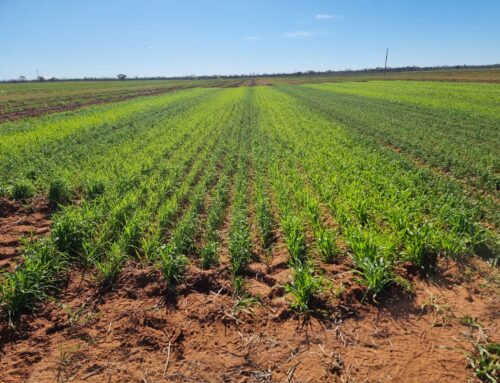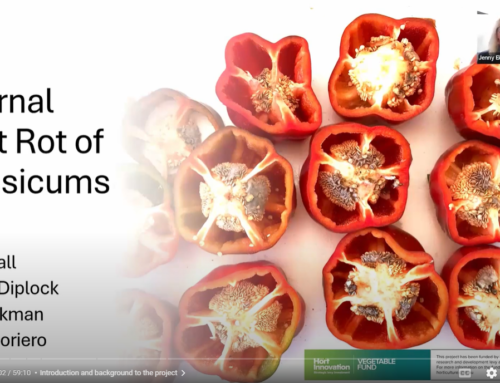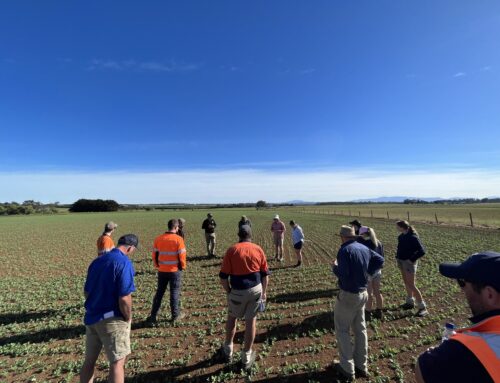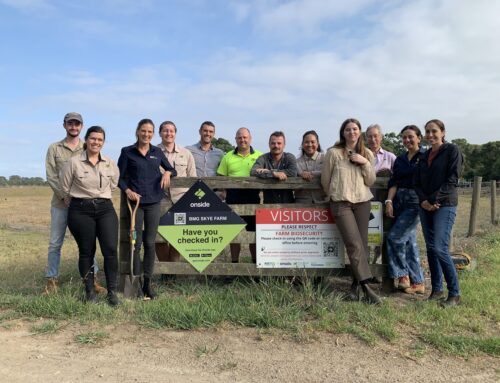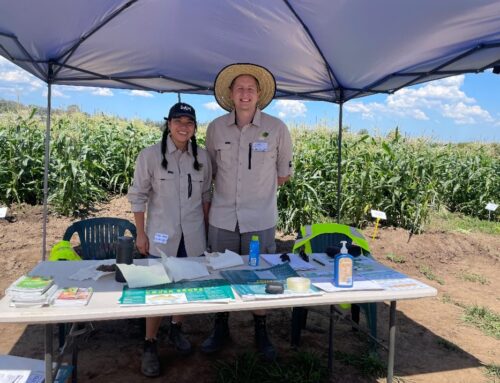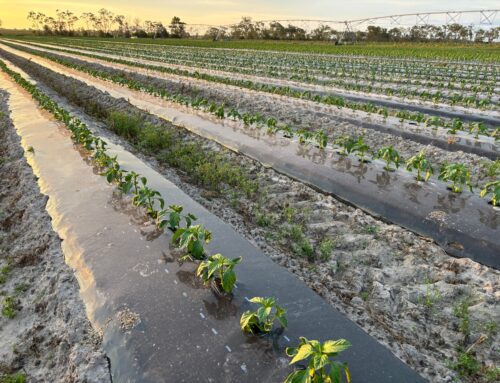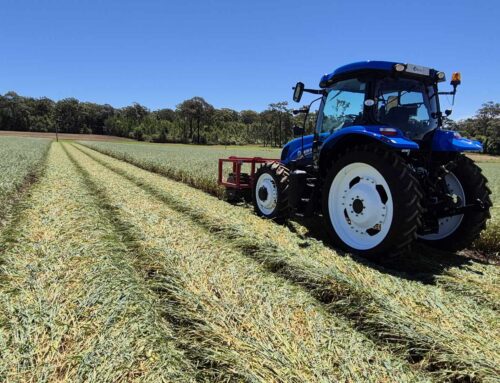Soil Wealth ICP team members, Dr Doris Blaesing and Sophia Thach, guided a group of eager growers, agronomists, and industry partners on the Soil Wealth ICP International Study Tour in New Zealand.
Over five days, the group visited many farms and trial sites, gaining firsthand insights into soil management, crop health innovations, and sustainable farming practices.
Concluding with New Zealand’s Horticulture Conference, the week’s activities highlighted the impressive commitment of New Zealand’s horticultural sector to innovation and sustainability.
“The amount of research and development, and research to practice we witnessed was truly inspiring,” tour co-organiser Sophia Thach said.
While the entire trip was fascinating, a few highlights truly stood out.
- Vegetables NZ Summit: The group learned about the ‘A Lighter Touch’ project, which focuses on delivering crop protection with a lighter environmental touch, shifting from reducing agrichemicals to an agroecological approach. Particularly noteworthy by the resilience of the local growers, especially following Cyclone Gabrielle, which had devastating impacts on crops.
- LeaderBrand: LeaderBrand’s commitment to regenerative agriculture was inspiring, especially their efforts in rejuvenating wetlands and involving the local community in these initiatives. The company’s approach to sustainability goes beyond farming, incorporating environmental stewardship into their business model.
- AS Wilcox & Sons: This family-owned business demonstrated a deep commitment to sustainable farming practices, focusing on improving soil health through integrated pest management (IPM), the use of compost, and biological inputs. Their efforts to enhance the entire farming system and support beneficial insects were a standout.
- Greengrower: The group was fascinated by Greengrower’s large-scale vertical production system, which produces over 20 varieties of leafy greens in half the time of traditional field methods. With 95% less water and fewer inputs, this innovative system offers a glimpse into the future of efficient, sustainable food production.
- Plant & Food Research: A visit to this government-supported research institute showcased New Zealand’s strong commitment to scientific research and development. Plant & Food Research plays a crucial role in advancing knowledge across the horticultural, arable, seafood, and food and beverage industries, with a focus on sustainability and innovation.
- Horticulture New Zealand Conference: The conference provided a high-level overview of sustainability, climate, food security, and health. Keynote speakers discussed how these issues are linked to regulations and policy, with a focus on the Recognised Seasonal Employer (RSE) scheme. A lively Q&A session sparked further discussion on the future of horticulture in New Zealand.
What Australia can learn from New Zealand
Sophia noted that New Zealand’s emphasis on research and development was a key takeaway from the tour.
“I’m still processing the inspiring field trips, but it’s evident that New Zealand’s commitment to R&D sets a great example to aspire to,” she said.
The tour reinforced the importance of continued collaboration and knowledge sharing between the two countries.
Next steps
Sophia, Doris and the Soil Wealth ICP team will be preparing a comprehensive summary of the trip, including key learnings and takeaways for the Soil Wealth ICP program. The presentation will highlight what was seen and heard during the tour, and the group’s overall impressions.
There are also plans to continue collaborating with Vegetables New Zealand, ensuring that valuable insights and innovations are shared across both nations.
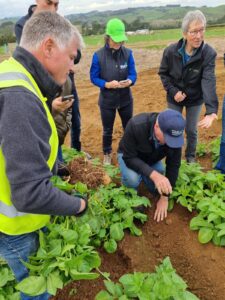
The group at AS Wilcox and Sons.
Acknowledgment:
The team is particularly grateful to Daniel Sutton, Research, Development & Extension Manager from Vegetables NZ and the wider Vegetables NZ team for all their help in organising and hosting this tour.
Funding statement
The NZ Study Tour was funded by Hort Innovation using the vegetable research and development levy, funds from the Australian Government and co-contributions from participants.

